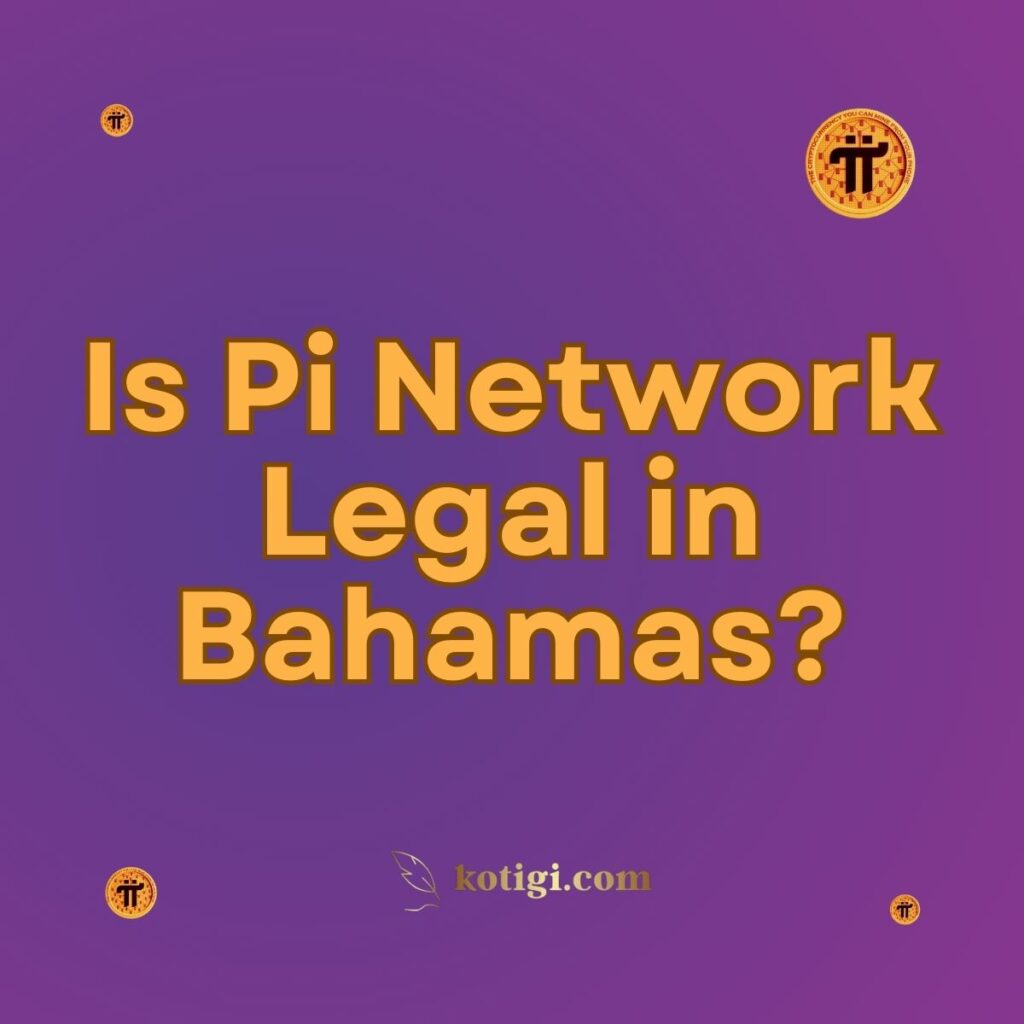
Is Pi Network Legal in Bahamas?
Pi Network is currently legal in the Bahamas, with no specific regulations or restrictions governing its use. However, like many countries, the Bahamas is still developing its regulatory framework for cryptocurrencies, meaning that general financial laws apply to Pi Network users.
Introduction
As Pi Network grows in global popularity, users in the Bahamas may wonder whether the platform is legal in their country. While there are no specific laws targeting Pi Network, the Bahamas is increasingly focused on regulating cryptocurrencies, largely to promote transparency and combat financial crimes. In this post, we will explore Pi Network’s legal status in the Bahamas, the broader cryptocurrency regulations in the country, and what users should know to stay compliant with the law.
1. Cryptocurrency Regulations in the Bahamas
The Bahamas has been proactive in addressing cryptocurrency through its regulatory efforts, particularly with the passage of the Digital Assets and Registered Exchanges Act (DARE Act) in 2020. While Pi Network is not yet directly regulated, these general cryptocurrency laws can impact how users engage with the platform.
1.1 The DARE Act
The DARE Act establishes the legal framework for digital assets in the Bahamas, focusing on anti-money laundering (AML) and combating the financing of terrorism (CFT). While Pi Network’s current model does not involve financial transactions, users may still be subject to these laws as the platform evolves.
1.2 Central Bank of the Bahamas’ Approach
The Central Bank of the Bahamas, which issued the world’s first central bank digital currency (CBDC) with the Sand Dollar, has not made any formal announcements about Pi Network. However, the central bank monitors the digital currency space, and future regulations could affect Pi Network users.
1.3 Cryptocurrency as a Legal Asset
Cryptocurrencies, including Pi, are legal in the Bahamas but must comply with the broader financial regulations under the DARE Act. Although there are no prohibitions against mining or holding Pi, users should remain aware of potential changes to the legal landscape.
2. Legal Status of Pi Network in the Bahamas
Pi Network currently operates in a legal gray area in the Bahamas. Users are free to mine Pi, but the platform does not yet fall under specific cryptocurrency regulations.
2.1 No Ban or Specific Regulation
Pi Network has not been explicitly banned or regulated by the Bahamian government. Users can legally participate in the platform without facing legal penalties, though they should remain informed about evolving regulations.
2.2 General Financial Laws Apply
While there are no specific Pi Network regulations, users must still adhere to general financial laws. This includes AML and CFT compliance, which may apply to Pi Network as it develops further.
2.3 Tax Considerations for Cryptocurrency
The Bahamas does not currently impose income tax on individuals, including cryptocurrency earnings. However, users should be cautious about potential future tax obligations as the regulatory environment matures.
3. Potential Risks for Pi Network Users in the Bahamas
Though Pi Network is legal, there are potential risks for Bahamian users, particularly if regulatory frameworks become stricter in the future.
3.1 Regulatory Uncertainty
As cryptocurrencies gain attention from regulators, there is always a chance that new laws or restrictions could be introduced. While Pi Network is not targeted at the moment, users should monitor any changes to Bahamian laws that might affect their ability to participate in the network.
3.2 Lack of Consumer Protections
Since Pi Network operates without government oversight, users do not benefit from legal protections if issues arise. This includes loss of tokens or problems with platform access, as there is no official body to resolve such disputes.
3.3 Future Legal Obligations
As Pi Network transitions into a more active cryptocurrency, Bahamian users could face legal obligations related to reporting transactions or complying with AML regulations. Preparing for potential legal obligations now can help users avoid complications later.
4. Opportunities for Pi Network in the Bahamas
Despite the potential risks, there are opportunities for Pi Network in the Bahamas, particularly as the government continues to support digital innovation and fintech development.
4.1 Alignment with Progressive Digital Currency Policies
The Bahamas has shown its commitment to digital currencies through the Sand Dollar initiative. This progressive stance may pave the way for future cryptocurrency platforms like Pi Network to integrate more easily into the Bahamian financial system.
4.2 Financial Inclusion and Decentralization
Pi Network’s mobile-first approach aligns with the Bahamian government’s push toward financial inclusion, especially in underserved communities. The decentralized nature of Pi could offer more financial options for citizens who may not have access to traditional banking services.
4.3 Potential for Regulatory Clarity
As the Bahamian government continues to refine its cryptocurrency regulations, there is a chance that platforms like Pi Network will be addressed directly. This could provide users with more clarity and security when participating in Pi Network activities.
5. How Bahamian Users Can Stay Compliant?
For Bahamian users, staying compliant with existing and future regulations is crucial to avoiding legal complications while using Pi Network.
5.1 Monitoring Regulatory Changes
Bahamian Pi Network users should regularly monitor the evolving cryptocurrency landscape to stay informed about new laws that could impact their participation. This includes keeping an eye on the DARE Act updates and other government announcements.
5.2 Ensuring AML Compliance
Even though Pi Network does not involve financial transactions yet, Bahamian users should familiarize themselves with the country’s AML and CFT laws. As the platform develops, ensuring compliance with these regulations will be key to avoiding penalties.
5.3 Keeping Records for Tax Purposes
While the Bahamas currently does not impose income tax, users who generate significant income from Pi Network in the future should consider keeping detailed records of their activities. This will help them stay compliant if tax obligations are introduced later.
Conclusion
In summary, Pi Network is legal in the Bahamas, with no explicit laws regulating its use. However, users must comply with the country’s general cryptocurrency regulations, particularly those outlined in the DARE Act. As the regulatory landscape evolves, Bahamian Pi Network participants should remain vigilant and informed to ensure their activities align with legal requirements. With the Bahamas’ progressive stance on digital currencies, Pi Network holds significant potential for future integration into the country’s financial system.
Key Takeaways
- Pi Network is currently legal in the Bahamas, with no specific regulations targeting the platform.
- The Bahamas’ DARE Act outlines the broader legal framework for cryptocurrency, but Pi Network is not directly regulated yet.
- Users must adhere to general financial laws, particularly AML and CFT regulations.
- There is no ban on Pi Network, but users should be aware of future regulatory changes.
- Pi Network has potential for financial inclusion and could align with the Bahamas’ progressive digital currency policies.





